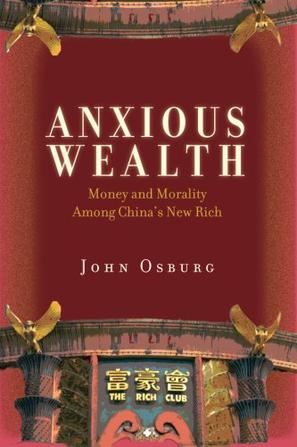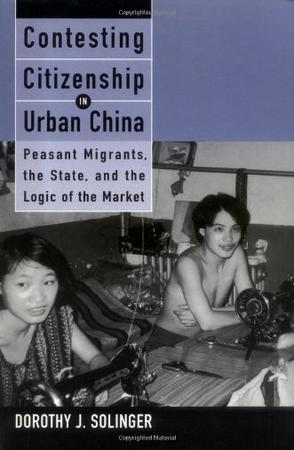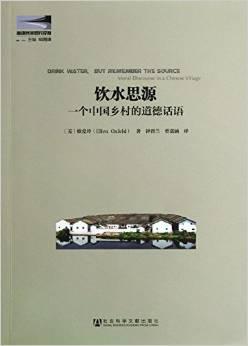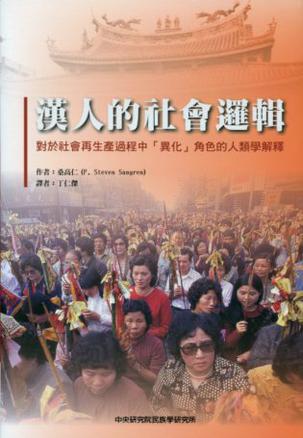-

Anxious Wealth
Who exactly are China's new rich? This pioneering investigation introduces readers to the private lives—and the nightlives—of the powerful entrepreneurs and managers redefining success and status in the city of Chengdu. Over the course of more than three years, anthropologist John Osburg accompanied, and in some instances assisted, wealthy Chinese businessmen as they courted clients, partners, and government officials. Drawing on his immersive experiences, Osburg invites readers to join him as he journeys through the new, highly gendered entertainment sites for Chinese businessmen, including karaoke clubs, saunas, and massage parlors—places specifically designed to cater to the desires and enjoyment of elite men. Within these spaces, a masculinization of business is taking place. Osburg details the complex code of behavior that governs businessmen as they go about banqueting, drinking, gambling, bribing, exchanging gifts, and obtaining sexual services. These intricate social networks play a key role in generating business, performing social status, and reconfiguring gender roles. But many entrepreneurs feel trapped by their obligations and moral compromises in this evolving environment. Ultimately, Osburg examines their deep ambivalence about China's future and their own complicity in the major issues of post-Mao Chinese society—corruption, inequality, materialism, and loss of trust. -

Capitalism from Below
More than 630 million Chinese have escaped poverty since the 1980s, reducing the fraction remaining from 82 to 10 percent of the population. This astonishing decline in poverty, the largest in history, coincided with the rapid growth of a private enterprise economy. Yet private enterprise in China emerged in spite of impediments set up by the Chinese government. How did private enterprise overcome these initial obstacles to become the engine of China's economic miracle? Where did capitalism come from? Studying over 700 manufacturing firms in the Yangzi region, Victor Nee and Sonja Opper argue that China's private enterprise economy bubbled up from below. Through trial and error, entrepreneurs devised institutional innovations that enabled them to decouple from the established economic order to start up and grow small, private manufacturing firms. Barriers to entry motivated them to build their own networks of suppliers and distributors, and to develop competitive advantage in self-organized industrial clusters. Close-knit groups of like-minded people participated in the emergence of private enterprise by offering financing and establishing reliable business norms. This rapidly growing private enterprise economy diffused throughout the coastal regions of China and, passing through a series of tipping points, eroded the market share of state-owned firms. Only after this fledgling economy emerged as a dynamic engine of economic growth, wealth creation, and manufacturing jobs did the political elite legitimize it as a way to jump-start China's market society. Today, this private enterprise economy is one of the greatest success stories in the history of capitalism. -

Subaltern China
Behind China’s growing economic and political power is a vast underworld of marginalized social groups. In this powerful and timely book, Wanning Sun focuses on the country’s hundreds of millions of rural migrant workers, who embody China's most intractable problems of inequality. Drawing on rich and extensive fieldwork, the author argues that despite the critical role their labor has played in enabling and sustaining the country’s remarkable economic growth, workers and peasants have become the nation’s “subalterns.” Sun focuses especially on the role of media and culture in negotiating the unequal relationships that exist between various social groups. She shows that in the face of the harsh reality of injustice and discrimination, China’s rural migrants engage in media and cultural practices that are at once both mundane and profound—invariably imbued with hope and dignity, and motivated by the dream of a better life. Exploring the cultural politics of inequality in post-Mao China, this engaging and compelling book will be essential reading for all concerned with the increasing centrality of media and the cultural politics of representation in our highly digitalized and mediated world. -

Contesting Citizenship in Urban China
-

饮水思源
人类学家在研究道德话语时会感到特别棘手,因为叙述与检验一种文化的道德话语很容易被误解为要对那种话语所暗示的“道德”进行评判,而这恰恰不是人类学家的使命所在。但是,在文化种类多样、范围宽广的中国,研究道德话语却十分必要。改革开放以来,中国的经济生活与伦理价值观发生了剧烈变化。在不少国人眼中,传统的道德体系已经趋于瓦解。那么,留存于中华文化达千百年之久的道德话语是否也跟着消失了呢? 在《饮水思源(一个中国乡村的道德话语)》中,欧爱玲教授对广东梅县客家乡村——月影塘的田野调查发现,当地人有关道德互惠的观念并未就此冻结。作为它们表现形式和外在内容的道德话语,反而随着时间推移与环境场域的革新不断进化,有时甚至超越一般意义上的等级秩序指向而变得极富弹性。月影塘的故事,或许正是城镇化经济辐射之下乡村社会关系在特殊文化背景中动态演变的缩影。 -

漢人的社會邏輯
丁仁傑先生翻譯美國籍桑高仁教授(P. Steven Sangren)這本《漢人的社會邏輯:對於社會再生產過程中「異化」角色的人類學解釋》,對台灣人類學的漢人研究貢獻很大,主要原因有幾方面:第一,這是本艱澀難讀的書,桑高仁的論述,並非立基於傳統民族誌個案之上,即非根據第一手 田野材料所衍生出來的理論討論,而是對台灣人類學漢人社會研究理論發展的一個整體評估。其次,為了讓讀者深入瞭解桑高仁的多重複雜論點,丁仁傑先生不畏艱難,投入更多心力,不但深入淺出地翻譯原文,更細讀原書中所涉及的各派論點,詳細比較其與桑高仁觀點的異同,以「譯按」的方式,附加在譯文中,協助讀者理解文本的意義。